Dupa plasarea solicitării de comandă, in sectiunea Istoric puteti vedea cate solicitări de comandă mai avem de procesat inaintea dumneavoastra
Program de lucru: Luni - Vineri 9:00 - 18:00, pauza 13:00 - 14:00.
Se efectueaza lucrari de mentenanta la site si pot aparea erori. In cazul in care intampinati erori va rugam sa reincercati mai tarziu.
Ridicarea personala este disponibila pentru comenzile achitate in avans. Se pot ridica dupa ce sunt pregatite.
No products
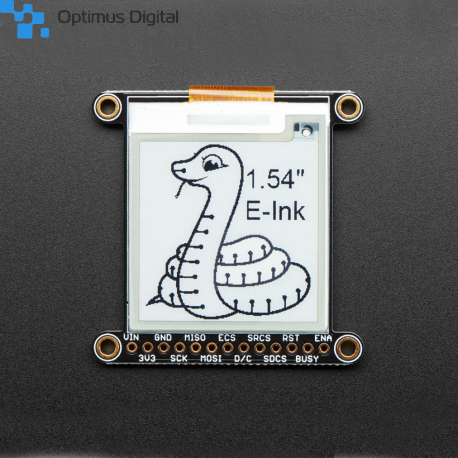 View larger
View larger
Adafruit 1.54" Monochrome eInk / ePaper Display with SRAM
P4196
New product
Easy e-paper finally comes to microcontrollers, with this breakout that's designed to make it a breeze to add a eInk display.
See description for more details about the product.
Add to cart now!
This product is no longer in stock
- Write a review
- Remove this product from my favorite's list.
- Add this product to my list of favorites.
More info
Description
Easy e-paper finally comes to microcontrollers, with this breakout that's designed to make it a breeze to add a eInk display. Chances are you've seen one of those new-fangled 'e-readers' like the Kindle or Nook. They have gigantic electronic paper 'static' displays - that means the image stays on the display even when power is completely disconnected. The image is also high contrast and very daylight readable. It really does look just like printed paper!
We've liked these displays for a long time, but breakouts were never designed for makers to use. Finally, we decided to make our own!
The breakout sports a 1.54" monochrome (black and white) display. It's higher resolution than our 1.54" Tri-Color display with 200x200 black pixels on a white-ish background. The monochrome displays also take a lot less time to update, only a couple seconds instead of 15 seconds!
Using our CircuitPython or Arduino libraries, you can create a 'frame buffer' with what pixels you want to have activated and then write that out to the display. Most simple breakouts leave it at that. But if you do the math, 200 x 200 pixels = 8 KBytes. Which won't fit into many microcontroller memories. Heck, even if you do have 32KB of RAM, why waste 8KB?
So we did you a favor and tossed a small SRAM chip on the back. This chip shares the SPI port the eInk display uses, so you only need one extra pin. And, no more frame-buffering! You can use the SRAM to set up whatever you want to display, then shuffle data from SRAM to eInk when you're ready. The library we wrote does all the work for you, you can just interface with it as if it were an Adafruit_GFX compatible display.
For ultra-low power usages, the onboard 3.3V regulator has the Enable pin brought out so you can shut down the power to the SRAM and display. We even tossed on a MicroSD socket so you can store images, text files, whatever you like to display. Everything is 3 or 5V logic safe so you can use it with any and all microcontrollers.
Comes assembled and tested, with some header. You'll need a soldering iron to attach the header for breadboarding or installing into your project.
Technical Details
Speifications
- Overall dimension: 43.5mm x 43mm x 4.6mm / 1.7" x 1.6" x 0.18"
- 4 x 0.1" / 2.5mm mounting holes in corners
- Display size: 28mm x 28mm / 1.1" x 1.1"
- Weight: 8.8g
Don't delay. Buy today.
Add to cart now!
Reviews
Customers who bought this product also bought:
-
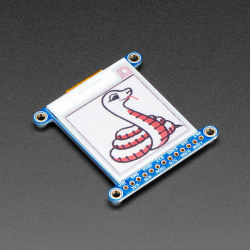
Adafruit...
Easy e-paper finally comes to microcontrollers,...
149,00 lei
-
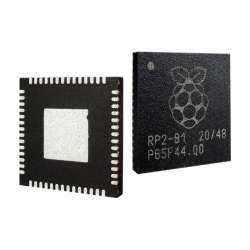
Raspberry Pi...
See description for more details about the...
4,92 lei
-
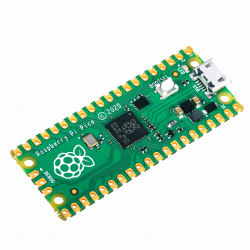
Raspberry Pi...
Genuine Product Raspberry Pi Pico is the...
22,49 lei
-
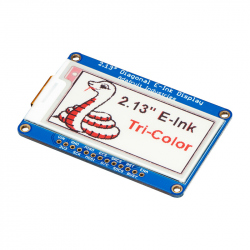
Adafruit...
Easy e-paper finally comes to microcontrollers,...
92,37 lei




